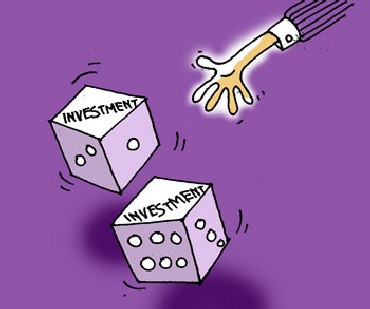Hemant Rustagi
The speculation and hype around an event like the Union Budget, Railway Budget or Diwali has become a regular feature.
No wonder, it evokes mixed emotions, that is, excitement, fear and anticipation amongst investors.
Though there is no denying that the Union Budget is an important event which influences the overall economic health of the country, many experts proclaim that it has become a non-event.
However, budget, which is a yearly affair, continues to cause varying degree of turbulence in the markets at least when t is around the corner.
Another budget has come and gone and, as always, experts are still trying to dig into the fineprints to find out if there is something more than what meets the eye.
...
Dos and don'ts of post-Budget investment
While this analysis is likely to continue for some time, investors are anxious to find out about the likely impact on their investment portfolios.
Though budget is a relevant event for investors, too, treating it as the one that can change the entire course of their long-term investment process can be a mistake that can cost them dearly.
The questions, therefore, are how should an investor react to an event like the the Union Budget?
Should he/she ignore what comes in the budget and what doesn't completely or just restrict the reaction to making minimal changes in the portfolio, if at all?
The short answer is not to get emotional about investment decisions and change the asset allocation itself, that is, the process of diversifying among different asset classes such as equity, debt, commodities and real estate under any kind of duress.
...
Dos and don'ts of post-Budget investment
However, given that every event like budget would contain certain important policy changes or announcements to be made, making slight realignment within an asset class such as moving out of certain sectors, increasing or paring exposure to certain sectors and/or remaining invested in certain sectors despite poor performance in the recent past may be in order.
A relevant example could be that of infrastructure funds, which were very popular till 2008 and were attracting huge investments.
However, considering their poor performance over the last couple of years or so, many investors have been wondering what to do with them.
With the significant allocations made for creating infrastructure in the Union Budget this year, which is likely to have a multiplier effect on the economy, it may be worthwhile for them to stay invested in these funds for some more time to analyse the impact before taking a final decision.
Likewise, certain important events may warrant a few changes in the portfolio and ignoring them may not be a wise thing to do.
...
Dos and don'ts of post-Budget investment
For example, under the Direct Taxes Code (DTC) which is going to be implemented from April 1, 2012, equity-linked savings schemes (ELSS) will cease to exist.
Therefore, someone who has been investing in ELSS as a part of the overall allocation to equities in the portfolio will be required to realign their portfolio and even accept lower allocation to equities while claiming tax exemptions.
But, for someone who is investing for a financial goal 15 years away, there is no logic of making changes in the asset allocation just because certain events may have short term impact on the markets.
Similarly, investing money on the similar grounds too is entirely unwarranted and illogical.
Many investors stop investing weeks before the budget especially if there is a buzz about some impending policy changes.
...
Dos and don'ts of post-Budget investment
Remember, budgets have minimal impact on the portfolio returns in the long-term.
Investing is a long-term endeavour and should be treated like one. It is a proven fact that despite suffering from extreme bouts of volatilities from time to time, equity as an asset class, has the potential to outperform other asset classes in the long run.
Therefore, though some of the events may add to or cause short-term volatility in the markets, the potential to earn positive real rate of returns, that is, returns minus inflation over the longer term remains intact.
Moreover, the right way to decide on the asset allocation is to consider one's risk profile, time horizon and investment objectives.
...
Dos and don'ts of post-Budget investment
Hence, the only reasons for making changes in the asset allocation should be the changes in one's risk tolerance, financial situation, or the financial goals itself.
In other words, moving in and out of an asset class on the basis of speculation about an event may jeopardise one's chances of achieving the desired level of investment success.
Therefore, to make major changes in the portfolio by following an event-based strategy is never advisable and, in fact, should be avoided completely.
The correct way is to stay the course and ignore short term market reactions.
The writer is CEO, Wiseinvest Advisors








article